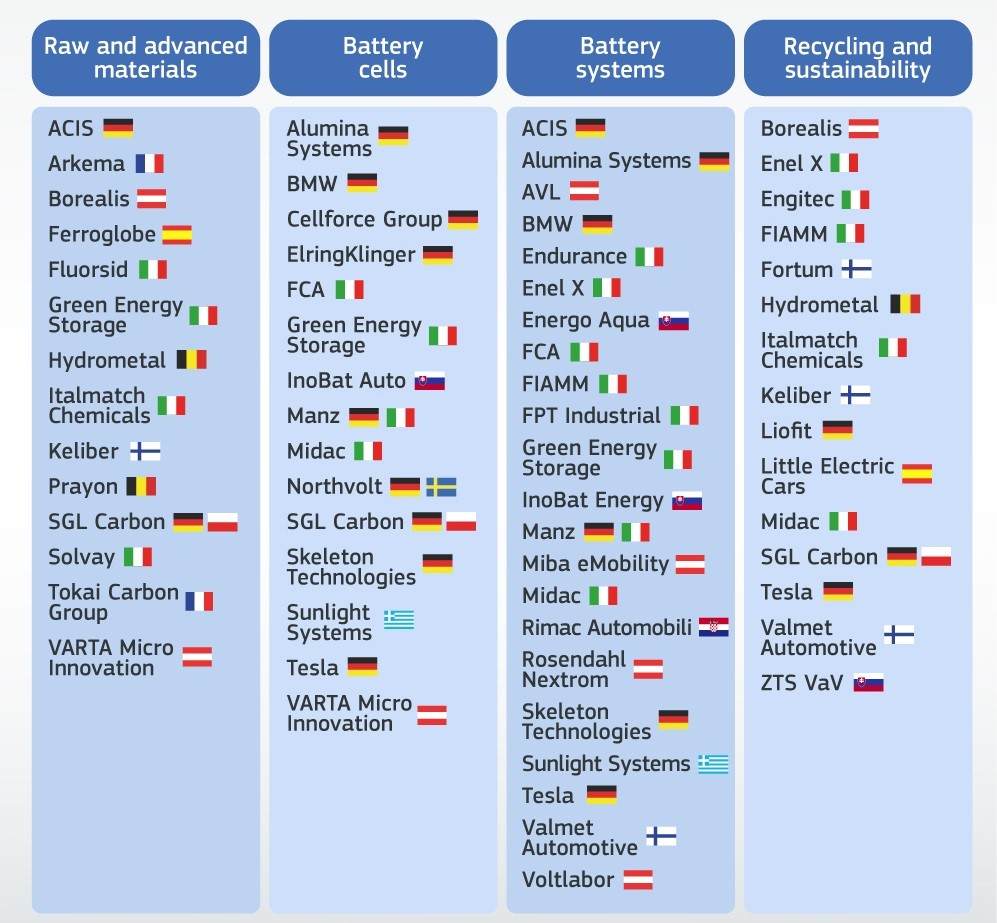The European Commission has approved a second Important Project of Common European Interest (IPCEI) that will see €2.9 billion handed out to carmakers, suppliers, technology businesses and energy companies to support research and development in the battery value chain.
The European Battery Innovation project has been prepared and notified by 12 member states. It will see companies such as Tesla, BMW, Fiat Chrysler Automobiles (FCA), Northvolt and Enel X share the funding across four areas of the battery supply chain. The public backing is expected to help unlock an additional €9 billion in private investments, as the Commission seeks to vastly improve Europe’s standing in battery manufacturing. The overall project is expected to be completed by 2028, although each sub-project will have different deadlines within this timeframe.
Funding will cover the entire battery value chain, from the extraction of raw materials, design and manufacturing of battery cells and packs, to the recycling and disposal of units in a circular economy, with a strong focus on continued sustainability.
New technologies
It is hoped that the funding will spur the development of next-generation battery technology that can power vehicles while being produced with little or no impact on the environment. The Commission hopes that the IPCEI will help develop battery technology further, including technological breakthroughs in cell chemistries and production processes, all of which will be in addition to what the first IPCEI, established in 2019, will accomplish.
‘For those massive innovation challenges for the European economy, the risks can be too big for just one member state or one company to take alone,’ comments executive vice president Margrethe Vestager, in charge of competition policy. ‘So, it makes good sense for European governments to come together to support industry in developing more innovative and sustainable batteries. This project is an example of how competition policy works hand in hand with innovation and competitiveness.
‘With significant support also comes responsibility: the public has to benefit from its investment, which is why companies receiving aid have to generate positive spillover effects across the EU.’
Environmental impact
The big focus of the project is sustainability. There is increased awareness of the carbon impact of vehicle electrification, as it starts its big push for market domination. Taking over from fossil-fuel-based technology, and championing the sustainable position for the automotive industry, companies need to increase awareness of the entire production cycle and its impact on carbon emissions.
‘The batteries value chain plays a strategic role in meeting our ambitions in terms of clean mobility and energy storage,’ said Thierry Breton, commissioner for internal market. ‘By establishing a complete, decarbonised and digital battery value chain in Europe, we can give our industry a competitive edge, create much-needed jobs and reduce our unwanted dependencies on third countries – in short, make us more resilient. This new IPCEI proves that the European Battery Alliance, an important part of the EU industrial policy toolbox, is delivering, he added.’
Companies involved in EU battery value chain IPCEI

Source: European Commission
The project will involve 42 direct participants, including small and medium-sized enterprises (SMEs) and start-ups with activities in one or more member states. The direct participants will closely cooperate through nearly 300 envisaged collaborations, and with over 150 external partners, such as universities, research organisations and SMEs across Europe.



 Close
Close